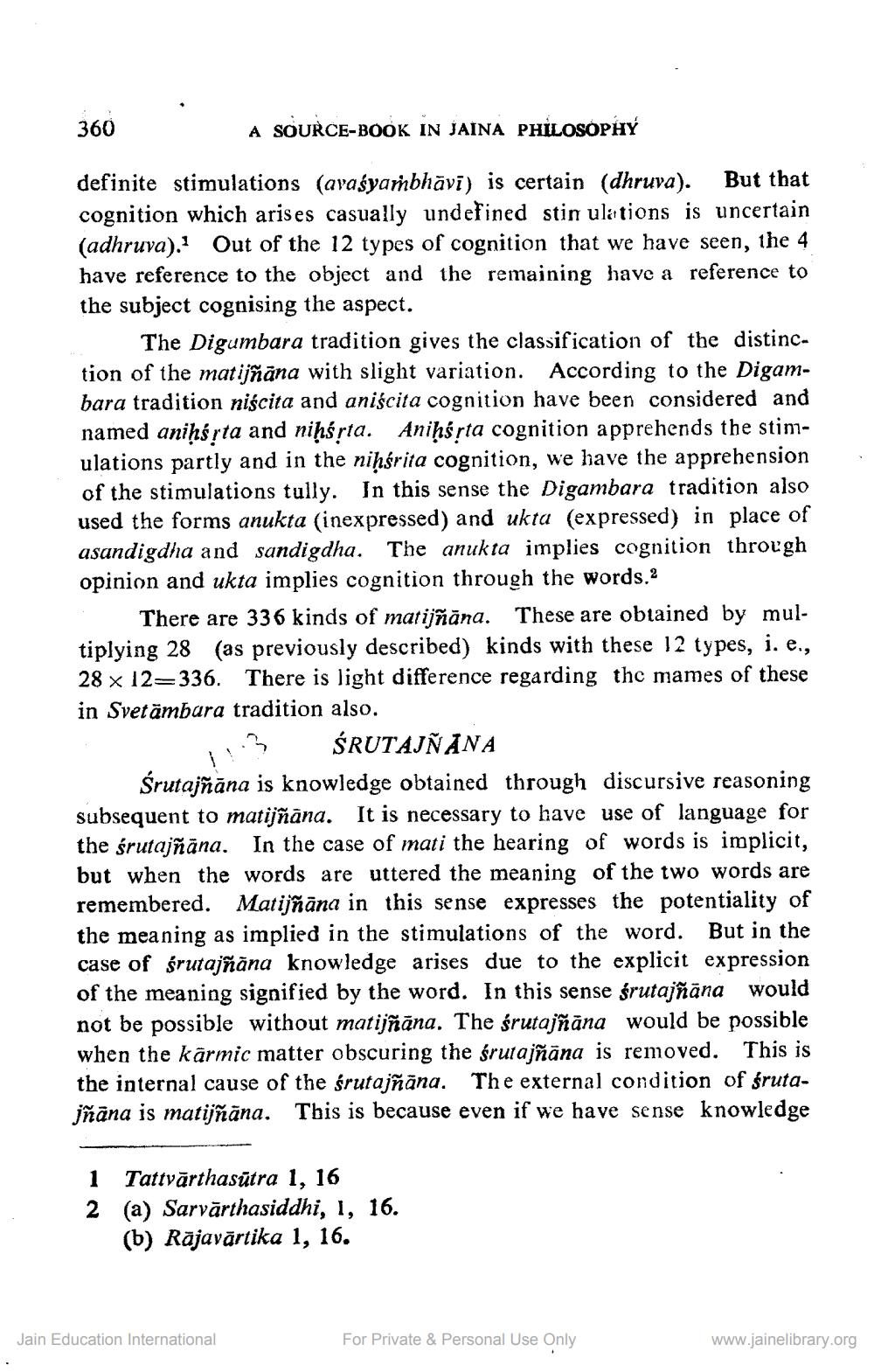________________
360
A SOURCE-BOOK IN JAINA PHILOSOPHY
definite stimulations (avaśyambhāvi) is certain (dhruva). But that cognition which arises casually undefined stin ulations is uncertain (adhruva). Out of the 12 types of cognition that we have seen, the 4 have reference to the object and the remaining have a reference to the subject cognising the aspect.
The Digumbara tradition gives the classification of the distinction of the matijñana with slight variation. According to the Digambara tradition niścita and aniścita cognition have been considered and named aniḥśrta and nihśrta. Anihśrta cognition apprehends the stimulations partly and in the nihśrita cognition, we have the apprehension of the stimulations tully. In this sense the Digambara tradition also used the forms anukta (inexpressed) and ukta (expressed) in place of asandigdha and sandigdha. The anukta implies cognition through opinion and ukta implies cognition through the words.2
There are 336 kinds of matijñāna. These are obtained by multiplying 28 (as previously described) kinds with these 12 types, i. e., 28 x 12=336. There is light difference regarding thc mames of these in Svetämbara tradition also.
11.3 ŚRUTAJÑANA Śrutajñāna is knowledge obtained through discursive reasoning subsequent to matijñāna. It is necessary to have use of language for the śrutajñāna. In the case of mati the hearing of words is implicit, but when the words are uttered the meaning of the two words are remembered. Matijñāna in this sense expresses the potentiality of the meaning as implied in the stimulations of the word. But in the case of śrutajñāna knowledge arises due to the explicit expression of the meaning signified by the word. In this sense śrutajñāna would not be possible without matijñāna. The śrutajñāna would be possible when the kārmic matter obscuring the śrutajñāna is removed. This is the internal cause of the śrutajñāna. The external condition of śrutaiñāna is matijñāna. This is because even if we have sense knowledge
1 Tattvārthasūtra 1, 16 2 (a) Sarvārthasiddhi, 1, 16.
(b) Rājavārtika 1, 16.
Jain Education International
For Private & Personal Use Only
www.jainelibrary.org




